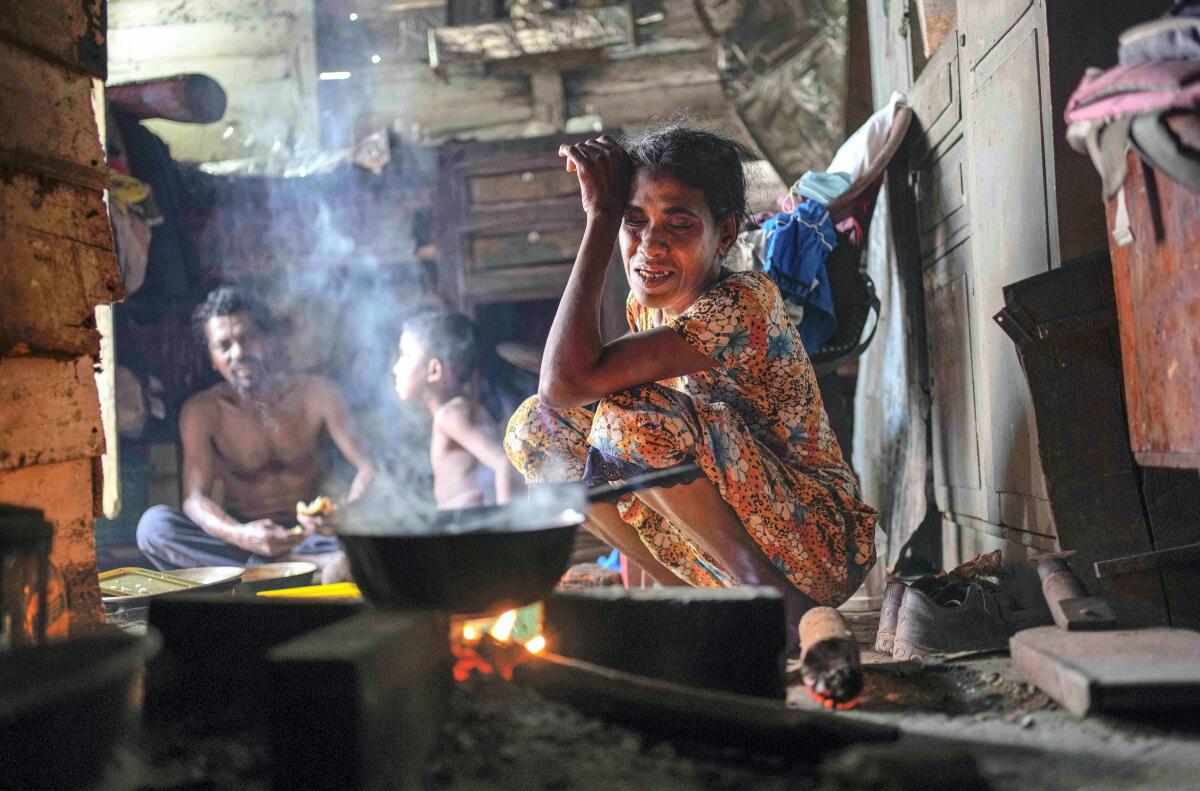
Women and children will be the worst hit by Sri Lanka’s economic crisis warns the head of the United Nations Economic and Social Commission for Asia and the Pacific (ESCAP) Subregional Office for South and South-West Asia, Mikiko Tanaka.
She made these remarks during a special discussion held at the Ministry of Industries with Minister Ramesh Pathirana.
The current economic crisis has left close to half of the population living below the poverty line. A third of the population is faced with food insecurity. And an increasing number of women have been forced into prostitution to make ends meet.
Last year, The Diplomat reported that over a quarter of households in Sri Lanka are headed by women but this number is particularly high in the Tamil North-East, where the decades-long armed conflict was concentrated. As the conflict was divided on ethnic lines, Sinhalese women, whose husband’s fought in the conflict on behalf of the Sri Lankan army, are seen to be economically stable as they are “eligible for a government-mandated salary and the pension of their deceased spouse”. In contrast, Tamil windows, whose partners fought against the Sri Lankan military, “do not receive any form of redress”.
The percentage of women-headed households is particularly high in the eastern province of Batticaloa at 32.2%. The North Central (Anuradhapura) and North Western (Kurunegala) provinces also have high percentages at 27.2 percent, and 26.7 percent, respectively. Tamil women whose partners fought on behalf of the Tamil liberation struggle “have to live with societal stigmas associated with widowhood and are subject to sexual bribery and other forms of sexual exploitation”. An issue compounded by the pervasive military occupation of the Tamil homeland.
Speaking to The New Humanitarian, Saroja Sivachandran, director of the Jaffna-based Center for Women and Development, attributed the reduction of male-headed households to three factors, “the war, disappearances or being in military custody”.
She also noted that:
“It has become cheaper to hire women - men would demand higher daily wages. Women unquestioningly accept what is given, often because they have many mouths to feed”.
The New Humanitarian gives the example of Maillaiyappal Thangavelu, a mother of two, whose husband was forcibly disappeared during the war. The 26-year-old Jaffna resident noted, “My sisters are still in school. My eldest child is in school. My parents are too weak to work”.
She earns $1.25 a day - half of what a man would earn for the same work.
Across the North-East there have been increasing reports of domestic and sexual violence as well as drug abuse and women forced into prostitution. The economic crisis has made the situation so unbearable that Tamil women are forced to send their children to foster homes as they are unable to provide for them.
Read more here,
